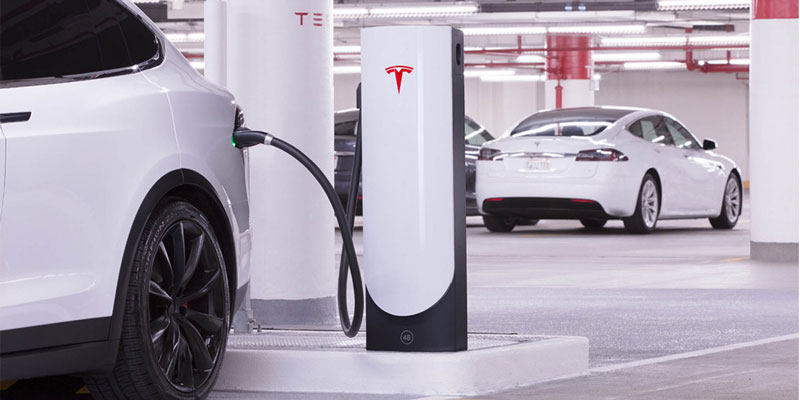Dec 09, 2023 By Triston Martin

If your vehicle is damaged during an accident and the cost of repairing it exceeds the car's actual worth, the insurance company determines that it cannot be repaired safely, or the car fulfils other standards established by your region; it may be declared a total loss under the terms of your policy. When the expected cost of repairing a damaged automobile exceeds the actual cash worth of the vehicle, the vehicle is deemed a "total loss."
Compared to other types of claims, this sort of claim is a little more complicated and takes a little more work on the policyholder's side. During a collision, your automobile is damaged severely enough to be more expensive to repair the vehicle than to replace it. This is known as an auto insurance total loss. If your automobile is taken, you will be considered to have suffered a total loss, if you have full insurance. Listed here is all you need to know about automobile insurance claims resulting from a total loss.
What Exactly Is Auto Insurance Total Loss?
Suppose you are involved in an accident and the cost of repairing your actual vehicle value. In that case, your auto insurance company may consider your vehicle a total loss and will charge you for the difference. The fact that it cannot be mended at all is likewise a total loss. If you have complete loss auto insurance, it implies you have the coverages in place to assist you with purchasing a replacement vehicle if yours is totaled. This usually implies that your policy will include collision insurance as well as comprehensive insurance protection.
If your automobile is damaged and you have the appropriate insurance coverage, your insurer will pay you a lump sum payment. The automobile is sometimes taken away and sold to a repair shop or reconstructed from the ground up by the company. After that, the vehicle will be issued a salvage title, informing potential purchasers that it has experienced severe damage.
What Is the Payment Amount for A Total Loss?
The amount of your auto insurance total losssettlement compensation is determined by the value of your vehicle. Your insurance provider considers the actual monetary worth of the vehicle when determining whether to declare the vehicle totaled. After considering any damageissues, this is how much the car is worth now. If the claims procedure is successful, the insurance will pay you the actual cash worth of your vehicle once all the essential variables have been considered. Those who finance their vehicles should be aware that the money received from their insurance provider may not be sufficient to pay off their vehicle loan. This is because your vehicle depreciates over time. If this occurs, you will be required to make up the difference out of your pocket.
What Happens If Your Automobile Is Deemed a Total Loss By The Insurance Company?
A total loss is handled in the same way as a standard automobile insurance claim. A claim adjuster will visit you to assess the damage and decide the amount of compensation you should get. The primary distinction is that, in addition to determining the cost of repair, the adjuster is also required to determine the worth of your automobile after the accident. This will determine whether the vehicle is a total loss, as well as the amount of money you will get in compensation.
If you get a car complete loss declaration by your insurance company and do not choose to contest the decision, there are a few things you should be aware of about the total loss procedure. If you are presently leasing your car, you should also call the leasing company to notify them that your vehicle has been declared a total loss. The actions outlined below detail what you should do if your vehicle has been ruled a total loss by the insurance company.
·License Plates Should Be Removed
Remove the license plates from the front and back of the vehicle and store them elsewhere. Leave your plates in an area where someone may remove them, and you could face problems later down the road. The safest course of action is to keep the license plates in your possession until they have been no longer included on your DMV record with the state.
·Take Your Personal Items with You
While you're taking off your license plates, have a look around inside the vehicle. Verify that nothing has been left on the dashboard, in the glove box, in the door and seat pockets, in the trunk, or anywhere else. Once you have turned in your keys, it is possible that you will not be able to restore anything that you had left in your car.
·Provide Your Claims Adjuster with The Keys
Once you have completed retrieving your license plates and personal belongings from the automobile, you will need to turn over all your keys to your claims adjuster for safekeeping. Then they will offer you numerous paperwork to complete, which you may do at your leisure.
·Complete All of The Necessary Documents
Fill out and sign any of the paperwork that has been supplied to you by your claims representative. Most individuals choose to transfer the automobile title to their insurance company, so you will most likely no longer be liable for the vehicle by the time the process is complete. On the other hand, you could decide to keep the car and restore it to the point where it qualifies for a rebuilt title if you want to drive it again.
-

An Essential Guide About: What Is Real Estate Investing?
Feb 08, 2024
-

Prequalify for Credit Cards: Find the Best Offers from Chase, Discover, Capital One, and More
Oct 09, 2023
-

Men’s Wearhouse Perfect Fit Credit Card
Oct 13, 2023
-

Revving Up the Future: The 10-Year Extension and Upgrades to the EV Charger Tax Credit
Oct 15, 2023
-

Mutual Funds vs. Hedge Funds: An Overview
Feb 10, 2024
-

Follow the leading ones in the mainstream stocks
Jan 05, 2024
-

Stocks in Electric Car Manufacturers
Jan 23, 2024
-

Different Kinds of Trusts
Feb 13, 2024



